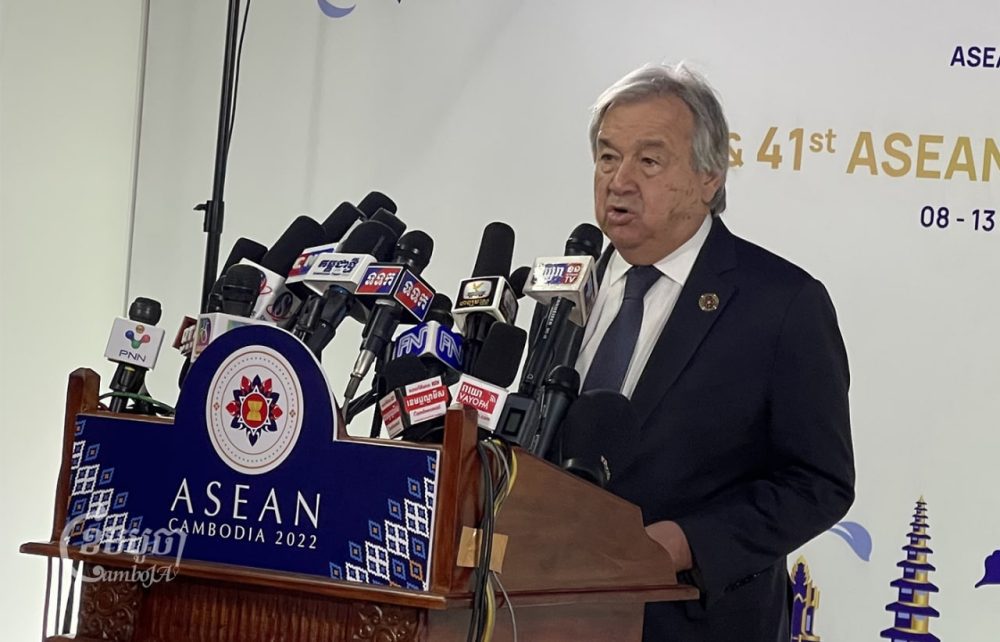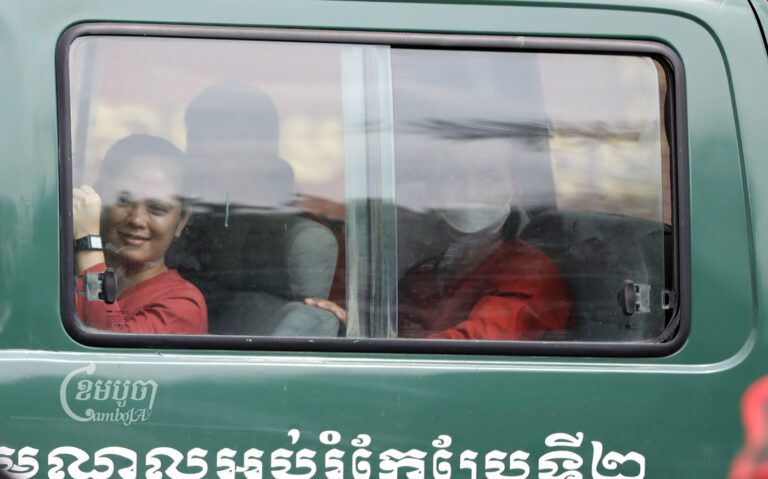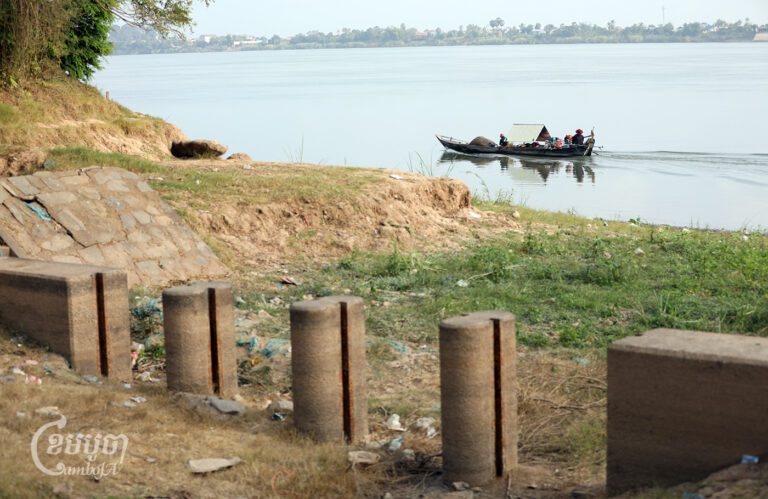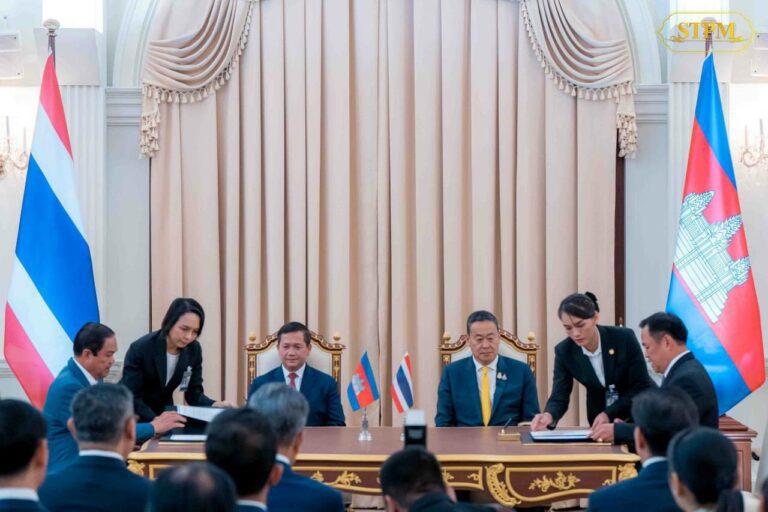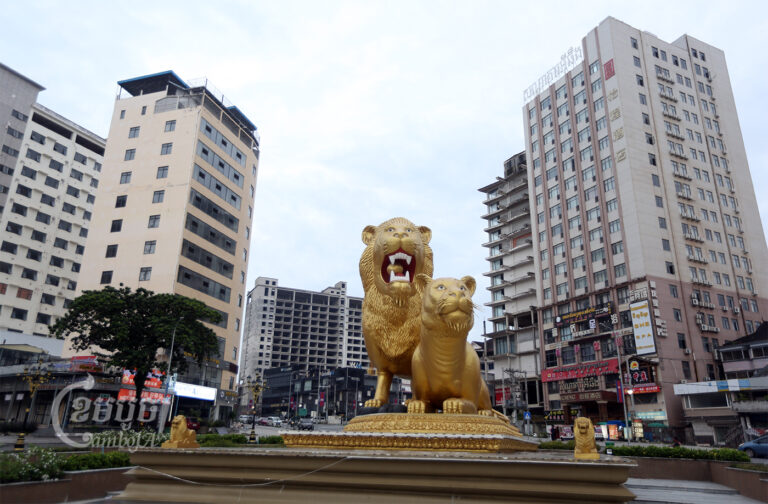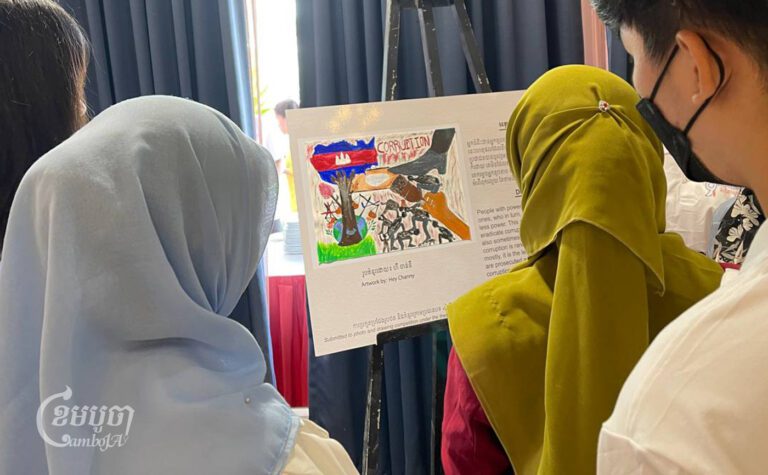Cambodia’s civic space should be expanded and human rights defenders protected, U.N. Secretary-General Antonio Guterres said in Phnom Penh on Saturday, adding that “everybody has failed” to solve the Myanmar conflict, but he trusts Indonesia to make progress next year as Asean chair.
“My appeal in a country like Cambodia is for the public space to be open and for human rights defenders and climate activists to be protected and for the cooperation with civil society to be extended,” Guterres told reporters Saturday morning at the Asean summit in Phnom Penh.
“At the same time, our biggest preoccupation in relation to human rights is of course Myanmar,” he said. “That is where the systematic violations of human rights are, I would say, absolutely unacceptable and causing enormous suffering.”
In recent years, the U.N. and human rights observers have criticized Cambodia over its 2017 outlawing of the main opposition party, arrests of dozens of party members and crackdown on civil society, activists and independent media.
But since Myanmar’s military overthrew the country’s elected civilian government in February 2021, more than 2,400 people have been killed by the junta and nearly 13,000 people associated with the pro-democracy movement are still detained, drawing regional attention.
Nine Asean leaders and Myanmar’s military leader Min Aung Hlaing agreed to a Five-Point Consensus peace plan in April 2021. The plan included pledges to immediately end the violence in the country; hold dialogue among all parties; appoint a special envoy to facilitate dialogue and meet with all parties; and deliver humanitarian assistance from Asean.
But critics have noted that the junta has not upheld the consensus principles and say the plan, and Cambodia’s leadership of Asean this year, have largely failed to make progress toward peace.
On Thursday, Asean leaders acknowledged that “little progress” had been made in implementing the Five-Point Consensus, but said it would remain the bloc’s “valid reference and should be implemented in its entirety.”
Asked to respond to criticisms that the U.N. and Asean had failed Myanmar’s people, Guterres told reporters on Saturday: “Everybody has failed in relation to Myanmar. The international community as a whole has failed and the U.N. is part of the international community.”
Guterres said the U.N. supported the Five-Point Consensus, and a “unified strategy” on Myanmar, and trusted that Indonesia’s leadership of Asean next year would “develop a number of initiatives” to achieve desired outcomes in Myanmar.
“I believe the Indonesian government will be able to push forward the agenda in a positive way,” he said.
Indonesian President Joko Widodo told reporters at the summit on Friday that he had proposed excluding Myanmar’s military leaders from other Asean functions, beyond major summits and foreign ministers’ meetings, Bloomberg reported.
Guterres urged the Myanmar military to release political prisoners, allow for the voluntary return of Rohingya refugees and “get the democratic transition back on track.”
“The situation in Myanmar is an unending nightmare for the people of the country and a threat to peace and security across the region,” he said.
Speaking of Cambodia’s human rights situation, Guterres said the U.N. intended to enhance its cooperation on human rights with Asean and was “hopeful that this cooperation will lead to meaningful improvements.”
Katta Orn, spokesperson for the governmental Cambodian Human Rights Committee, said Guterres’ comments did not reflect the “actual situation” in the country.
“In Cambodia, we do not have such matters happening because Cambodia has carried out the principles of democracy, rule of law and human rights,” Orn said. “We have a range of freedoms and political and fundamental rights.”
“The standard of implementation of the law is equal, so we can’t allow members of civil society groups or opposition activists who have violated the law — they cannot escape the law,” he said.
More than 50 people are currently imprisoned in Cambodia, mostly over peaceful political activism, according to human rights organization Licadho.
Since 1993, when the U.N. backed elections in Cambodia following decades of conflict, Orn said the country had made progress in opening space for civil society and holding “free and fair elections,” a claim widely denied by rights watchdogs and Western governments.


